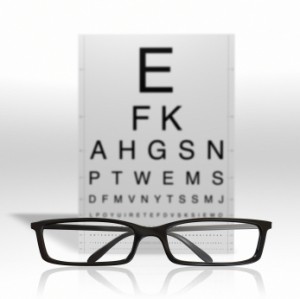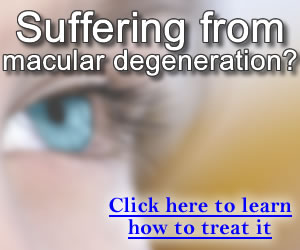Age-Related Macular Degeneration Facts
 Do you need a brighter light to read by or is a blurred spot in the middle of your vision blocking facial recognition? Does age-related macular degeneration make it harder for you to adjust to the dim light of a restaurant after being outside?
Do you need a brighter light to read by or is a blurred spot in the middle of your vision blocking facial recognition? Does age-related macular degeneration make it harder for you to adjust to the dim light of a restaurant after being outside?
Looking for Macular Degeneration Treatment?
If so, you are one of the millions of United States residents living with age-related macular degeneration, a chronic eye disease that affects many adults over age 60. Experts predict it to be a growing problem due to people living longer and the presence of more ultraviolet light in our environment.
The exact cause of age-related macular degeneration is unknown, but it occurs when the center of the retina, or macula, breaks down causing blurring or a blind spot in your central vision.
The macula is a layer of tissue inside the back wall of your eyeball. This is the area of the retina where fine focusing occurs.
As your eye ages, the retinal pigment cells start to atrophy. When that happens, the cells are less efficient at removing waste. The normal color of the macula becomes a mottled yellow in appearance and degeneration of this tissue causes a blind spot or blurring in the center of vision.
People age 50 or older are at risk for age-related macular degeneration, with those over 65 at greater increase. This eye disease can run in families although it statistically affects whites and women with more frequency.
Smoking, obesity, ultraviolet light, bad nutrition, drug side effects and cardiovascular diseases are also considered risk factors to developing or aggravate existing macular degeneration.
There are two types of macular degeneration, dry and wet. Dry macular degeneration, is the most common with about 90 percent diagnosed. Wet macular degeneration is a more severe progression of the disease that’s accompanied by blood vessel leakage.
Some people have dry macular degeneration for years without progressing to wet, however, your chances are higher and increase with each passing year. Macular degeneration doesn’t cause blindness, but it can lead to severe vision loss.
Although good therapies exist now for wet macular degeneration, early detection remains essential. Make sure you stay with your doctor’s treatment program and schedule frequent check ups. There’s no known cure for either dry or wet macular degeneration.
Living with vision impairment can put a huge damper on your daily activities. Seek out vision assistive devices that will work for you. For many people this can be as simple as a magnifying glass or lens, but others may need prescription glasses to get the right personal sight adjustments.
Request large print books, magazines and many web sites have bigger fonts. Some manufacturers make clocks, telephones and other appliances with larger than normal numbers.
Get out, see people and travel. Don’t allow age-related macular degeneration to turn you into a shut-in. When family and friend relationships are lacking, there are many volunteer organizations and church groups set up to help you get out and socialize safely. Take advantage of online resources for support.
